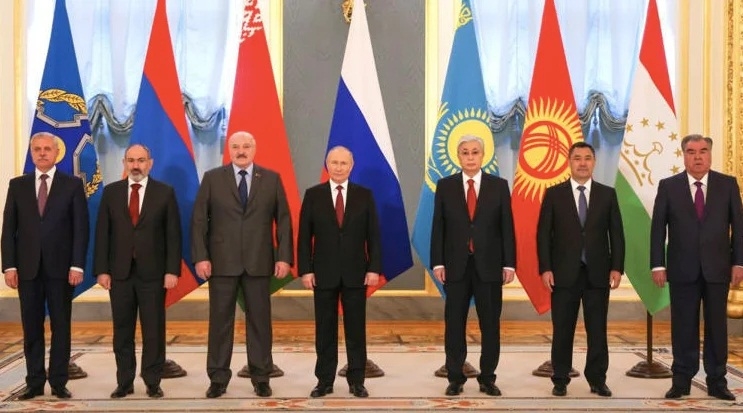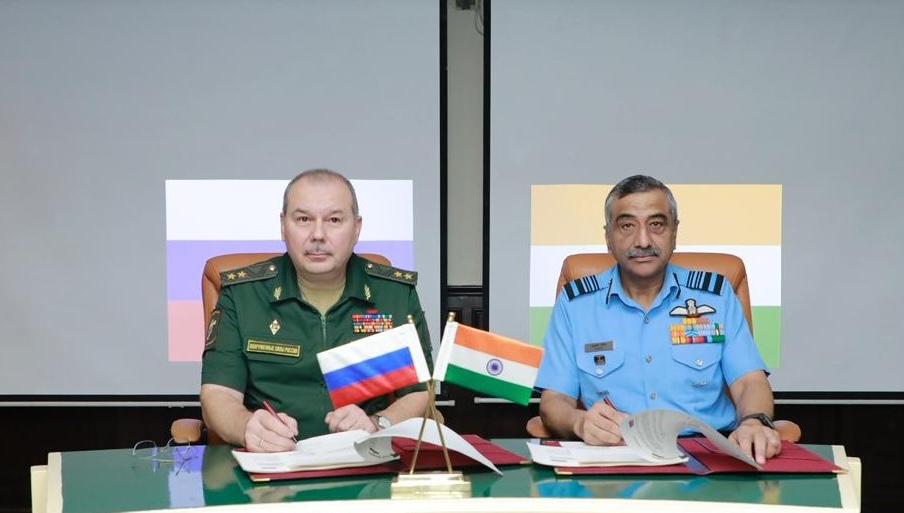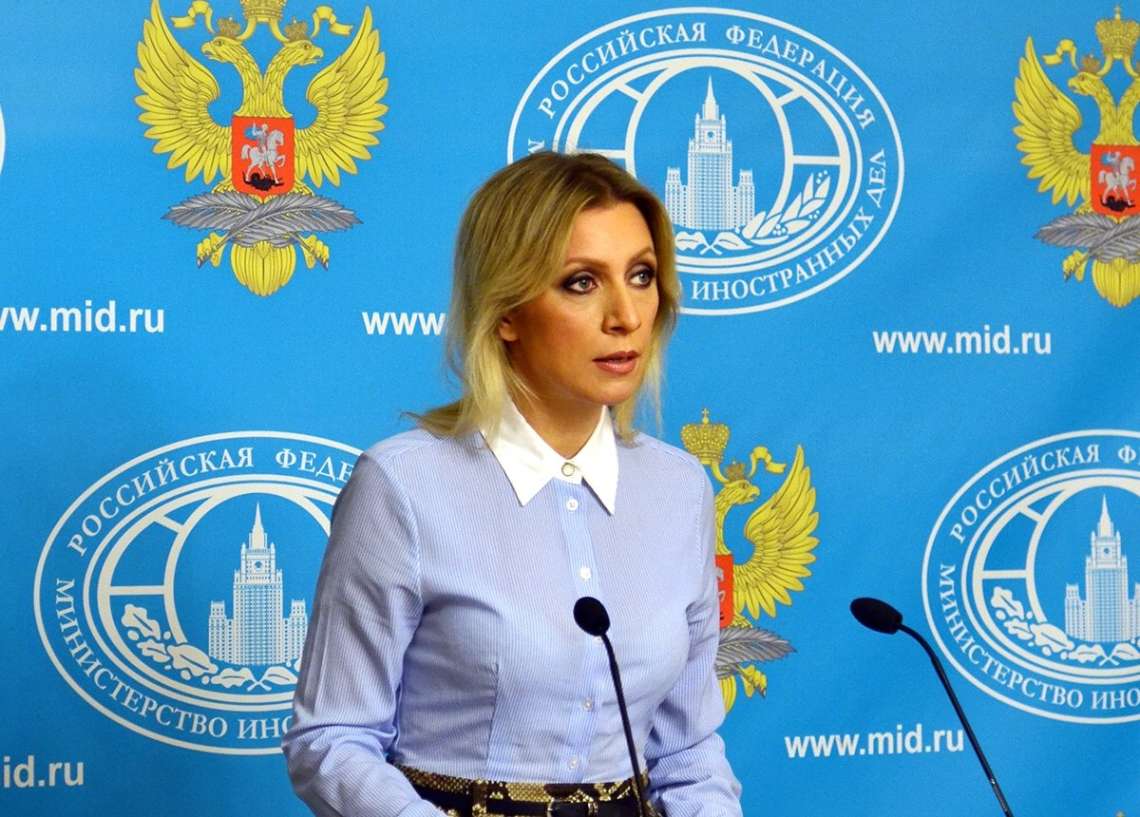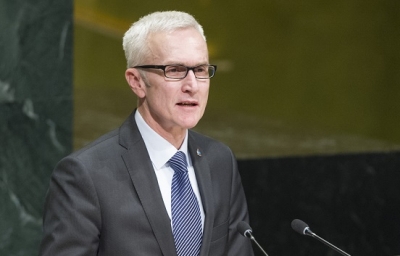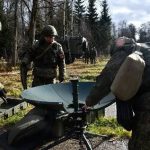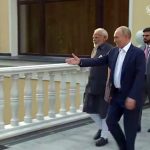The disastrous performance by the Russian army in Ukraine over the last few months has forced the Central Asian countries to re-think that if Russia has been found wanting so drastically in Ukraine, how would it be able to provide security to them, writes Ashok Sajjanhar
The Russia-Ukraine conflict which has been continuing for the last more than seven months has resulted in a huge decline in the standing and prestige of Russia in the world. It was initially thought that Russia would be able to effect a quick regime change in Kiev resulting in an early end to the war. It was with such assumptions that the Ukrainian President Volodymyr Zelensky was offered political asylum both by the then UK PM Boris Johnson and US President Joe Biden in the first days of the conflict. Zelensky, however, countered by saying that he wanted, not asylum, but armaments and ammunition to fight the enemy.
Right from the beginning, Zelensky maintained that he was fighting to win. No one believed him. They attributed his statements to misplaced bravado. Both Zelensky and his forces as well as the Ukrainian people however surprised the whole world by the grit and determination with which they withstood the onslaught of the mighty Russian army. Russian President Vladimir Putin might have thought that the Russian forces would be welcomed as liberators in Ukraine but the tenacity and fortitude with which the Ukrainian soldiers and people have defended their country has earned them the admiration and respect of large segments of the global community.
Ukraine’s remarkable successes particularly over the last few weeks by quickly taking over large swathes of land in the north and south of the country earlier annexed by Russia as well as strategically situated towns like Lyman have taken Russia as well as the world by surprise. The wisdom at the start of the war was that Ukraine cannot win because Russia cannot lose. The significant reverses suffered by Russia over the last few weeks have forced the global strategic community to re-examine their assumptions.
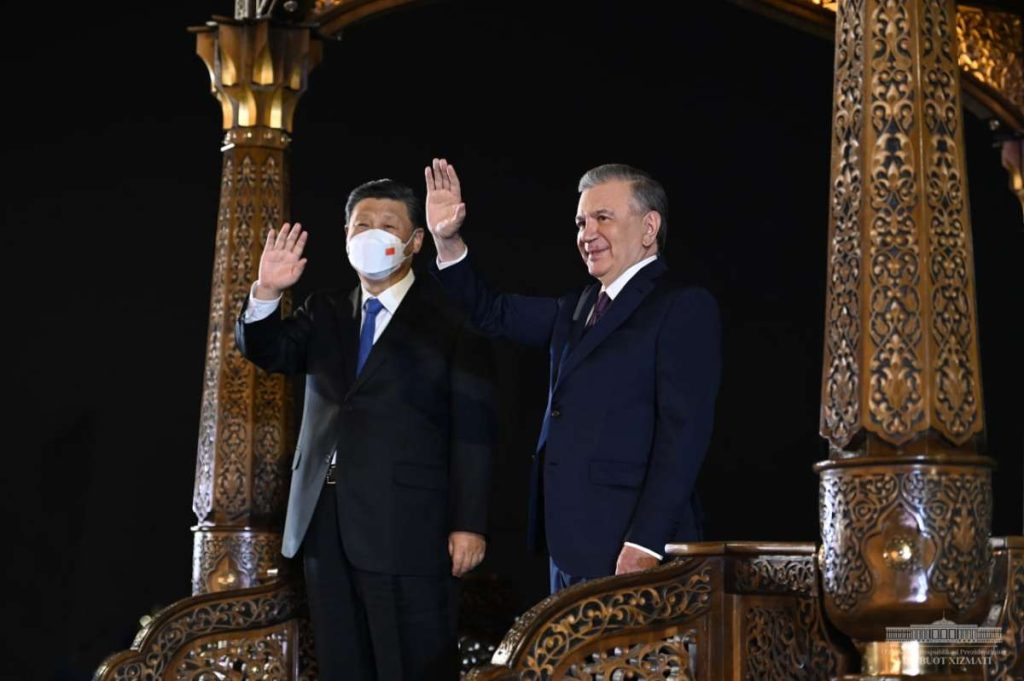
In Central Asia, China has been rapidly expanding its foot print over the last many years, not only in the trade and economic fields but also in political, military and security affairs. This has been evident in the myriad oil and gas pipelines from Kazakhstan, Uzbekistan and Turkmenistan in Central Asia to China over the last two decades. The Belt and Road Initiative launched initially as the One Belt One Road Project in 2013 in Kazakhstan has provided a further impetus to the rapidly expanding China-Central Asia partnership.
Since the disintegration of the Soviet Union in 1991, Russia has been viewed as the security provider of the Central Asia region. The Collective Security Treaty Organization (CSTO), a NATO like security bloc established under the leadership of the Russian Federation was expected to ensure security and stability of countries in the region. The CSTO did swing into action to provide a few thousand troops to provide security to Kazakhstan when it was rocked by violent protests and demonstrations at the beginning of this year. Although the CSTO forces stayed in Kazakhstan for barely a few weeks and were not required to fire even a single shot, the fact that they could be mobilised at such short notice was seen as indicative of Russia’s authority in the region.
The Russia-Ukraine conflict since the end of February, 2022 has, however, completely transformed the relative equation and standing of Russia and China in Central Asia. This had started becoming evident even since 2014 with the annexation of Crimea by Russia. The ensuing sanctions by the West resulted in pushing Russia increasingly into the embrace of China with Russia emerging as the junior, subordinate partner to China.
The last few months have thrown up many instances which would emphatically suggest that the Central Asian nations viz. Kazakhstan, Kyrgyzstan, Tajikistan, Turkmenistan and Uzbekistan are getting increasingly uneasy and uncomfortable with Russia’s actions in Ukraine. The sway and influence of Russia in Central Asia which it characterizes as its ‘near abroad’ is declining and sliding.
Several instances to substantiate the above can be cited. Some of these are:
Both Kazakhstan and Uzbekistan which are the largest countries of Central Asia in land area and population respectively pursue “multi-vector foreign policies.” Leaders of both the countries have stated unequivocally that they will not recognize the independent status of Luhansk and Donetsk People’s Republics.
At the St Petersburg International Economic Forum in June, 2022, President Kassym-Jomart Tokayev of Kazakhstan responding to a question in the presence of Russian President Vladimir Putin stated that Kazakhstan does not acknowledge the independence of LPR and DPR. He said that if the right of nations to self-determination was recognised, there would be more than 500-600 countries instead of the current 193 members of the UN. For this reason, he said that Kazakhstan inter alia does not recognise the independence of Kosovo, or [the breakaway Georgian regions of] South Ossetia and Abkhazia. And, also quasi-state territories like Luhansk and Donetsk. Kazakh Foreign Ministry stated on 26th September, 2022 that it will not recognise the referenda conducted by Russia in the four provinces of Ukraine. It voiced its support for the territorial integrity of States.

During the same visit to St Petersburg, Tokayev, in response to a question from the state-run Rossia-24 television station, about the gratitude that Kazakhstan ought to feel for the support rendered by Russia/CSTO to it in its hour of need in January, 2022, stated: “In Russia some people distort this whole situation asserting that Russia supposedly saved Kazakhstan and Kazakhstan should now eternally serve and bow down at the feet of Russia. I believe that these are totally unjustified arguments that are far from reality.”
The then Foreign Minister of Uzbekistan Abdulaziz Kamilov stated in the Uzbek Senate on 17th March, 2022: “Uzbekistan historically has traditional all-round ties with both Ukraine and Russia…Uzbekistan recognises the independence, sovereignty and territorial integrity of Ukraine. We do not recognise the Luhansk and Donetsk People’s Republics.”
Senior Kazakh leaders have stated on several occasions that Kazakhstan will not violate the Western sanctions imposed on Russia as it did not wish to be subjected to secondary sanctions of the western nations.
Timur Suleimenov, the first deputy chief of staff to president Tokayaev said during his visit to Brussels in March, 2022: “We have not recognized and do not recognize either the situation with Crimea or the situation with Donbass, because the UN does not recognise them. We will only respect decisions made at the level of the United Nations.”
Kazakhstan’s Deputy Minister of Foreign Affairs Roman Vassilenko, in a meeting with the EU in March, 2022, emphasised the importance of minimising or preventing the negative effects of EU’s sanctions against Russia on trade and economic relations between Kazakhstan and EU. He added: “European companies are leaving Russia either due to sanctions or due to pressure from the public, from shareholders and ethical reasons. They want to be somewhere in the neighbourhood, and we would like to be that neighbour.” He said in an interview that Kazakhstan did not want to become a collateral victim of politically motivated economic warfare and if “there is a new iron curtain, we do not want to be behind it.”
Both Uzbekistan and Kazakhstan have expressed keen interest to welcome multinational companies which want to leave Russia as a result of the sanctions imposed by Western nations on Russia. According to reports, several companies have already relocated to these countries.
Uzbekistan, Kazakhstan, Kyrgyzstan and Tajikistan have expressly barred their nationals residing in Russia to join the war effort against Ukraine. It appears that at the beginning of the conflict, but particularly after the announcement of mobilisation of 300,000 troops by Russia last month, Russia has offered attractive salaries and also expedited processes to obtain citizenship of the country after having served at the front for one year.
Some sporadic protests and demonstrations against Russia’s war in Ukraine have been allowed and been held in Kazakhstan and Kyrgyzstan. Humanitarian assistance and medical relief supplies to Ukraine have been provided by Kazakhstan, Uzbekistan and Turkmenistan.
President Putin’s diminished standing amongst Central Asian states was visible when he was received by the Uzbek Prime Minister on his visit to Samarkand, Uzbekistan to participate in the SCO Summit. On the other hand, Chinese President Xi Jinping was received by Uzbek President Shavkat Mirziyoyev himself at the airport. It has also been reported that Putin was made to wait for his bilateral meetings at the SCO Summit in Samarkand interalia by Presidents of Turkey, Kyrgyzstan and Azerbaijan. It has been mentioned that in the past President Putin has often been late for his meetings and has made leaders of other countries wait for him. These reports have not been countered by the Russian foreign office.
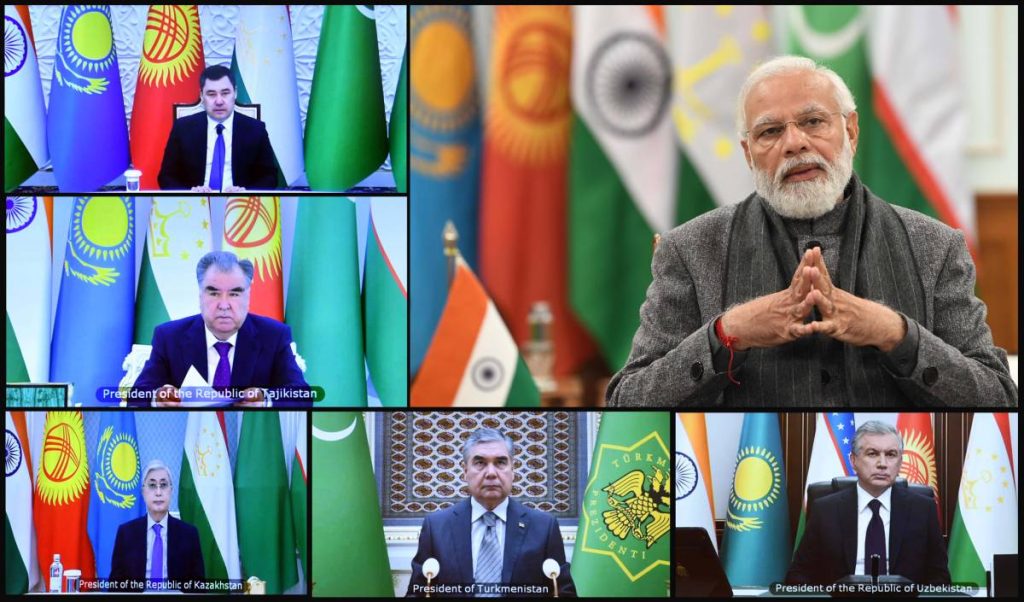
Central Asian countries are feeling nervous both at the arguments advanced by Russia to launch its offensive against Ukraine as also the impunity with which President Putin was able to carry out the attack. Some of them, particularly Kazakhstan, are worried that they could be next. Kazakhstan has the world’s longest land border of more than 7,000 kms with Russia and also has a 18 per cent population of Russian origin and ethnicity. Kazakhstan in particular, but the other Central Asian nations to a much lesser extent, are fearful of Russia’s thinking and plans.
Recently there was a tweet by former Russian President and PM Dmitry Medvedev that Kazakhstan is an “Artificial State”. This tweet was however quickly taken down and it was clarified that Medvedev’s account had been hacked. Putin had himself made a similar assertion some years ago. Several right wing politicians in Russia have made threatening noises after Tokayev’s Statement in St Petersburg in June, 2022 warning Kazakhstan that it should watch its steps as it could be the next after Ukraine. Tokayev had quite clearly made his displeasure and objection evident during that visit.
The disastrous performance by the Russian army in Ukraine over the last few months has forced the Central Asian countries to re-think that if Russia has been found wanting so drastically in Ukraine, how would it be able to provide security to them. The diminishing stature of Russia in the Region has animated China to quickly enhance its influence in the region. This was visible in the recent announcement of the China-Kyrgyzstan-Uzbekistan railway link which had been lying dormant for the last many years. Also, several far-reaching agreements to further expand partnerships were signed by Xi Jinping during his recent visits to Kazakhstan and Uzbekistan.
While welcoming the flow of investment from China to their countries, the Central Asian nations, particularly the people, if not so much the ruling classes and elite, are anxious and apprehensive about the unduly growing influence and dominance of China. They have hence started looking out for options amongst other countries.
Several countries in the region and beyond are also sensing this opportunity and are keen to strengthen their partnership with these countries. Turkiye has been working on Central Asian countries for the last many years. It shares historical, cultural, linguistic, religious and civilisational ties with all of whom, except with Tajikistan. The last few years have witnessed frequent meetings between the leadership of Central Asia with the President of Turkey. President Erdogan was also present in person for the first time at the SCO Summit in Samarkand. Iran has also been advancing its partnership with Central Asia. It has just become the newest member of SCO. The US organised a C5+1 meeting with the foreign ministers of all Central Asian states in the margins of the UNGA in New York recently.
The rapidly metamorphosing dynamics of the regional and global security architecture provides a bright opportunity for India to diversify and deepen its partnership with the Central Asian countries. The Central Asian countries constitute a part of India’s extended neighbourhood. India has millennia old historical and civilisational relations with these countries. India has not been able to leverage its age-old connection with this region because of the absence of geographic contiguity and lack of connectivity with these countries. India has significantly accelerated its engagement with the region over the last eight years starting with the visit by Prime Minister Narendra Modi to all the five countries in July, 2015. Recent months and years have witnessed a significant uptick in the intensity of bilateral ties.
Prime Minister Modi organised a Central Asia+India Summit in a virtual format on 27th January, 2022. It was agreed that such Summits would be organised every two years. PM Modi visited Samarkand, Uzbekistan in September, 2022 and Bishkek, Kyrgyzstan in June, 2019 for the SCO Summits. India and Central launched the India-Central Asia Dialogue at the level of foreign ministers in Samarkand, Uzbekistan in 2019. The last such Dialogue took place in New Delhi in December, 2021. NSA Shri Ajit Doval organised a meeting of regional National Security Advisors to discuss the situation in Afghanistan in November last year. This was attended amongst others by NSAs of all the Central Asian countries. Indian ministers and senior officials from different departments and agencies of the government have inter alia met their counterparts from Kazakhstan, Kyrgyzstan, Tajikistan and Uzbekistan (who are members of the SCO) frequently in SCO meetings.
There is considerable identity of views and position on most regional and global issues between India and Central Asia. Some of these include peace and stability in Afghanistan; Connectivity (INSTC and Chabahar-all Central Asian countries are land-locked countries, with Uzbekistan being doubly land-locked); counter-terrorism; climate change; trade and investment etc. India can share its expertise in the areas of IT, Startups, pharmaceuticals and much more with Central Asian countries. There is empathy, warmth and trust between the people of India and Central Asia. There is no fear or threat perceived from India as is the case with some other neighbours in the Region.
It would be useful for India to collaborate with other like-minded countries like USA, Japan, Europe and others to strengthen and deepen engagement with Central Asia. This would be to mutual benefit and advantage.
India has been working pro-actively to significantly augment its ties with Central Asia in recent years. It needs to identify further avenues and opportunities in areas spanning political, security, strategic and business to academic, culture, tourism, sports and people-to-people connect. India-Central Asia ties are poised on the threshold of enhanced security, stability and prosperity.
(Ashok Sajjanhar is a former Ambassador of India to Kazakhstan, Sweden and Latvia. He is an Executive Council Member at the Manohar Parrikar Institute for Defence Studies and Analysis and President, Institute of Global Studies. Views expressed are personal and exclusive to India Narrative)
(The content is being carried under an arrangement with indianarrative.com)


